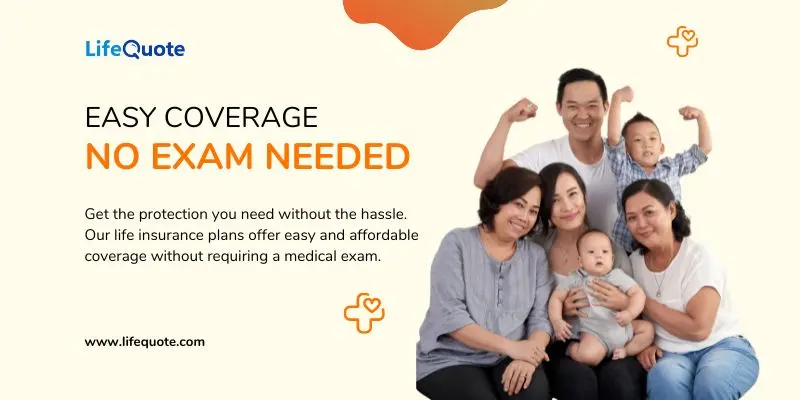- Speak to a licensed sales agent!
- (800) 521-7873
COVID-19 Medical Research on Fast-Track While Life Insurance Applicants Are Closely Scrutinized

After nearly two months of uncertainty, under varying stages of lockdown and quarantine across the country and millions of people worldwide getting infected with COVID-19, potential treatments for the virus are slowly emerging. Hospitals and research labs around the world have been working nonstop to create a vaccine and potentially promising ways to treat the virus and improve survival rates.
We don’t appear to be near a cure, so scientists are searching for ways to save the lives of infected patients. Any scientific discovery brings a glimmer hope to all of us waiting for life to return to normal. However, this situation is creating new challenges for those seeking life insurance during the coronavirus.
Updates for COVID-19 Treatment
Through innovative testing and research, more medications are being discovered to be effective in treating forms of COVID-19. Some of these medications, such as the anti-viral drug Tamiflu or the popular and Azithromycin antibiotic—known as “Z-Pak”—drugs normally used to treat bacterial infections, pneumonia, or influenza. Others that are normally used to treat HIV and other related autoimmune diseases might also be beneficial, but none are proven yet.
The most promising news came from the drug developer Gilead Sciences who launched clinical trials on the experimental drug remdesivir. However, the results thus far are considered “not clinically significant” and this medication is not approved by the FDA for general use in treating COVID-19. Studies showed a mixed bag or results—some found it to be somewhat effective in treating symptoms while others found no difference in those treated with it versus a placebo. With accelerated testing, scientists hope that the drug could be used on a larger scale.
Apart from possible drug treatments, another method of treatment has been using plasma collected from the blood of those who have recovered from COVID-19. The understanding is that the blood of those previously infected has produced antibodies that can help others fight off the virus, as some test subjects in China reported an improvement in breathing and a decrease in their symptoms after plasma administration.
The second type of non-medication treatment involves stem cells, as they can allegedly repair inflammation and damage to organs. Some hospitals have begun to treat COVID-19 patients with stem cells from umbilical cord tissue and has found that the lung conditions of the patients improved more rapidly than those who had received different forms of treatment. South Florida’s Baptist Hospital Systems has taken a leading role in these groundbreaking stem cell therapies.
Although these scientific discoveries and experimental treatments are still in early stages, hearing of success promotes a healthy optimism for those who long for life to return to normal after COVID-19.
What This Means for Life Insurance Applicants
The news of any possible treatments, vaccines, or cures, helps reduce people’s fear of dying, but many Americans are still turning to life insurance to quell their feelings of vulnerability and mortality. Applications for policies are up 40% among U.S. insurers. But this increase has many life insurance companies looking closer and scrutinizing applicants who are at greater risk of dying from COVID-19. For those who already own a life insurance policy, the health crisis will not affect your premiums or coverage. However, for those who do not currently have a policy, this increased precaution can make purchasing a policy much more difficult.
Life insurance companies weigh the risk of dying as the criteria for issuing a policy and for setting a premium rate. Therefore, applicants over the age of 70 are currently much less likely to get approved for insurance as the CDC reports that COVID-19 causes drastically higher death rates among those who are 70 and older. Also, those who have any underlying health condition or compromised immune system are especially at risk. Because of this, some insurance companies have postponed considering life insurance policies to older applicants or have even turned them away entirely.
Now, carriers have more in-depth questions for all applicants related to their potential exposure to the virus as well as their recent travel history, which can affect approval for coverage. COVID-19 testing is also becoming the norm for insurance applications.
These decisions are driven not only by the health risks but also by economic changes. America’s top insurers have survived wars, The Great Depression, and the 1918 Flu Pandemic. Companies use the “Law of Large Numbers” to estimate the losses of groups of insured people. In other words, as the number of policyholders increases, the more confident the insurance company is that its prediction will prove true. Thus, they carefully select their groups of insured people and are less willing to accept high-risk applicants in favor of applicants who will more likely stay alive to pay their premiums.
Why You Should Still Consider Getting Life Insurance
This news about life insurance might make you feel discouraged about being able to find a policy that works for you and is also affordable at the same time. It’s true that it might be more challenging to get approved for a life insurance policy if you are older and have certain underlying medical conditions. However, there are still options out there with plans specifically tailored to older applicants and for those not in perfect health.
Nevertheless, because of the increased scrutiny that life insurance applicants are experiencing, added to the uncertainty of how long COVID-19 will last, it’s best not to wait to purchase a policy. If you are younger and healthy, you will have a greater chance of getting the coverage you need during these uncertain times. Some might not feel that they can afford it right now with tighter budgets, but there are affordable options in different price ranges. A licensed life insurance agent can help guide you to plans that work for your specific situation. If you have a young family, a two-income household, you can adjust the amount you need or shorten the length of the term coverage. It’s not a one-size-fits-all solution.
How LifeQuote Can Help
The COVID-19 pandemic is still a very real concern, but there is only so much we can do to control the outcome, except practicing responsible social distancing. Take this opportunity to protect your loved ones from the threat of financial insecurity that could adversely impact their future. LifeQuote offers both permanent and term life insurance policies, as well as those that require no medical exam for qualified candidates who want to skip the medical test and get a no-contact policy. Not all will qualify but younger, healthier applicants stand a better chance of approval. Take your future into your own hands and get a free quote from us today.




